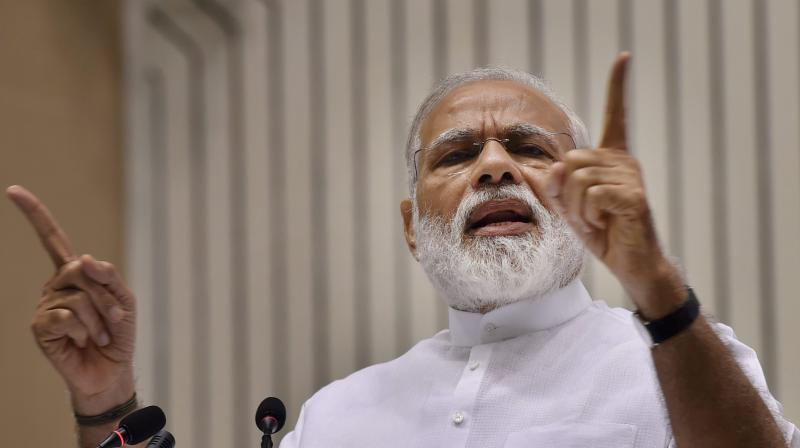S. Asia satellite: India's gift to the region

The launch of the South Asia Satellite by India on May 5, which Prime Minister Narendra Modi announced on Sunday, is a milestone in the integration of the region and in boosting the developmental motif. ISRO’s Rs 450-crore communications satellite will enable full-spectrum applications and be an invaluable aid to economic development. As the PM noted, the satellite will make possible natural resources mapping, tele-medicine, the enhancement and spread of education (through broadcast facilities), deepening of IT connectivity and promoting people-to-people contact. Besides India, the participating nations are Bangladesh, Nepal, Sri Lanka, Bhutan, the Maldives and Afghanistan (whose signature is delayed for technical reasons). Each will have access to at least one Ku band transponder through which they can beam their own television programmes across the region or can have common programming as well.
Intra-regional cultural and economic connectivity is the obvious fallout that will hopefully promote a political togetherness as well. It is doubtless this possibility that Pakistan is wary of, especially since India is involved, and chose to stay out of the project. For the last 70 years, Pakistan’s policy-framers, as distinct from India’s, have sought to underline how far apart the two countries are rather than point to the immense possibilities of binding them together. The Pakistani military, which runs the country, is known to shun all but impersonal contacts, particularly in the defence and security field. Connectivity that raises the people-to-people pitch is looked upon with suspicion for fear that this may eventually facilitate processes that loosen the grip of the armed forces over society. Because Pakistan chose not to be a part of the programme, the original name of “SAARC Satellite” was changed to “South Asia Satellite”.
What a pity Islamabad excluded itself. Ordinary people in Pakistan would have gained from the science and technology benefits as much as people of the remaining SAARC countries. It is commonly thought that SAARC has moved painfully slowly as a grouping because of political discord between India and Pakistan over Kashmir, but the basic reason is Islamabad’s inherent suspicion of all integrating mechanisms that purport to bring people of the region together — first in a common market framework and then hopefully in the higher domains of society and politics. Branding the satellite as India’s “priceless gift”- to quote the PM- may have hurt the sentiment of some recipients. A more neutral description would have sufficed.

